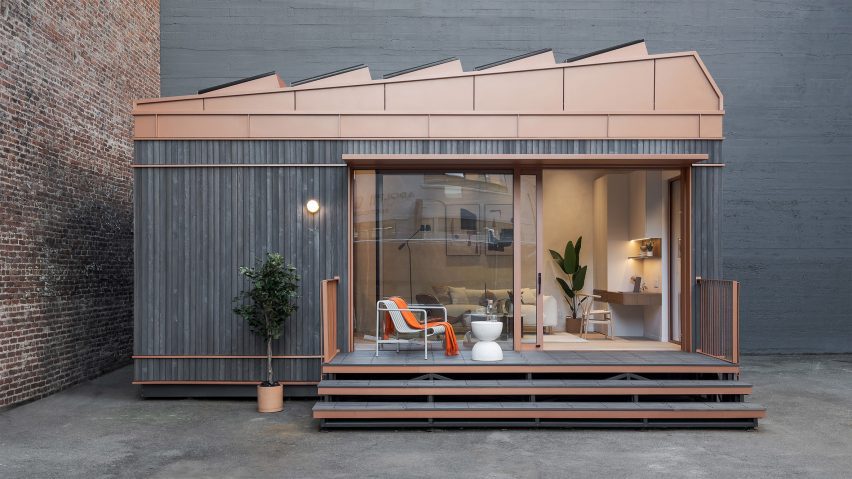
Cosmic reveals updated "high-quality" model of all-electric micro home
US company Cosmic has unveiled an accessory dwelling unit that it claims is the first to come with integrated systems for generating and storing solar power and recycling water.
Called Cosmic ONE, the building is an upgraded version of a model unveiled in 2002 by the San Francisco-based company. The small building is designed for a variety of applications.
"Cosmic ONE is a limited-edition, high-quality micro home that can serve as an accessory dwelling unit (ADU), a primary single-family home, or building blocks for an entire residential community," said Cosmic.
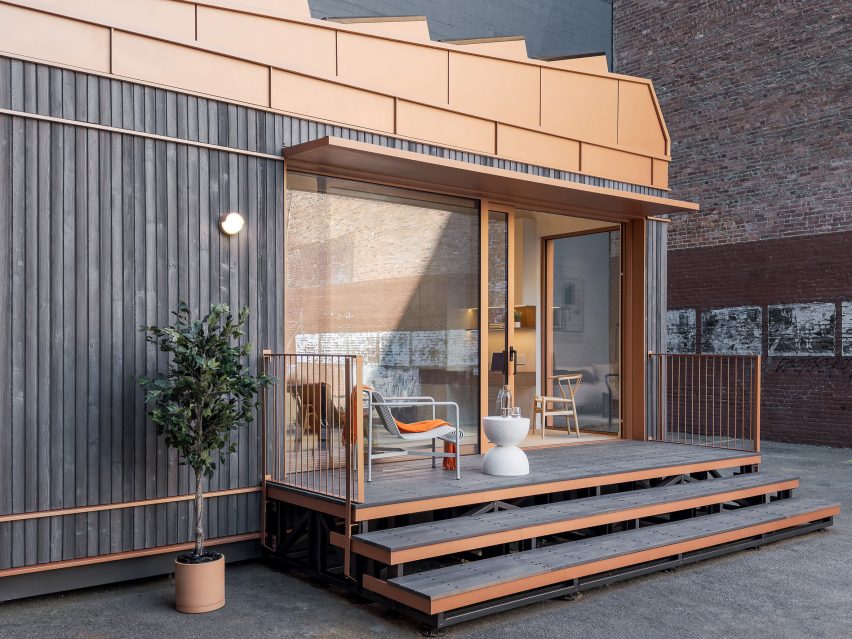
The latest iteration is offered in three configurations.
The first, called The Studio, spans 395 square feet (37 square metres) and serves as the base version. It contains a room with a living space and kitchen with pocket doors, along with a bathroom.
Customers can add on to the base unit to create a one-bedroom unit totalling 595 square feet (55 square metres) or a two-bedroom unit spanning 750 square feet (70 square metres).
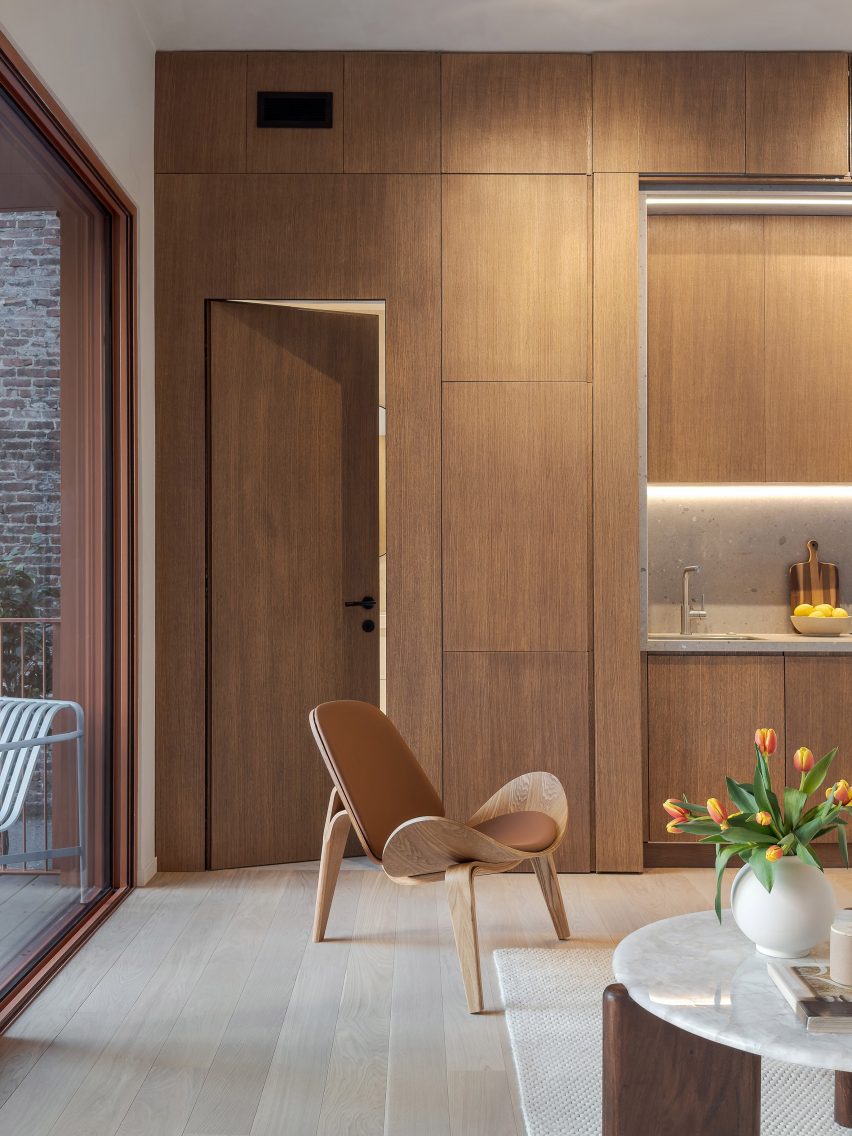
Exterior and interior finishes are customisable. A unit now on display in San Francisco features charred wood siding, an orange-hued aluminium fascia, and an exterior deck made of steel and stained larch.
Inside, the display unit is fitted with engineered hardwood flooring and medium-density-fibreboard (MDF) cabinetry with a white oak veneer.
From start to finish, a unit can generally be built and installed in about seven months. The building components are made in a factory, transported to the site by truck, and assembled on-site.
"Using modern manufacturing techniques, Cosmic ONE significantly reduces build times, cost variability and material waste compared to traditional construction methods," the team said.
The Cosmic micro home has systems for generating and storing power and recycling water.
"Cosmic ONE is the first ADU with an integrated water recycling system, solar, and battery," the team said.
A rooftop solar array is composed of 10 to 32 panels, depending upon the size of the building. The smallest array is expected to generate 24 kWh per day, while the largest one will generate 76 kWh daily.
The home also comes with a 40 kWh battery for storing electricity and a system for capturing wastewater and reusing it for non-potable needs.
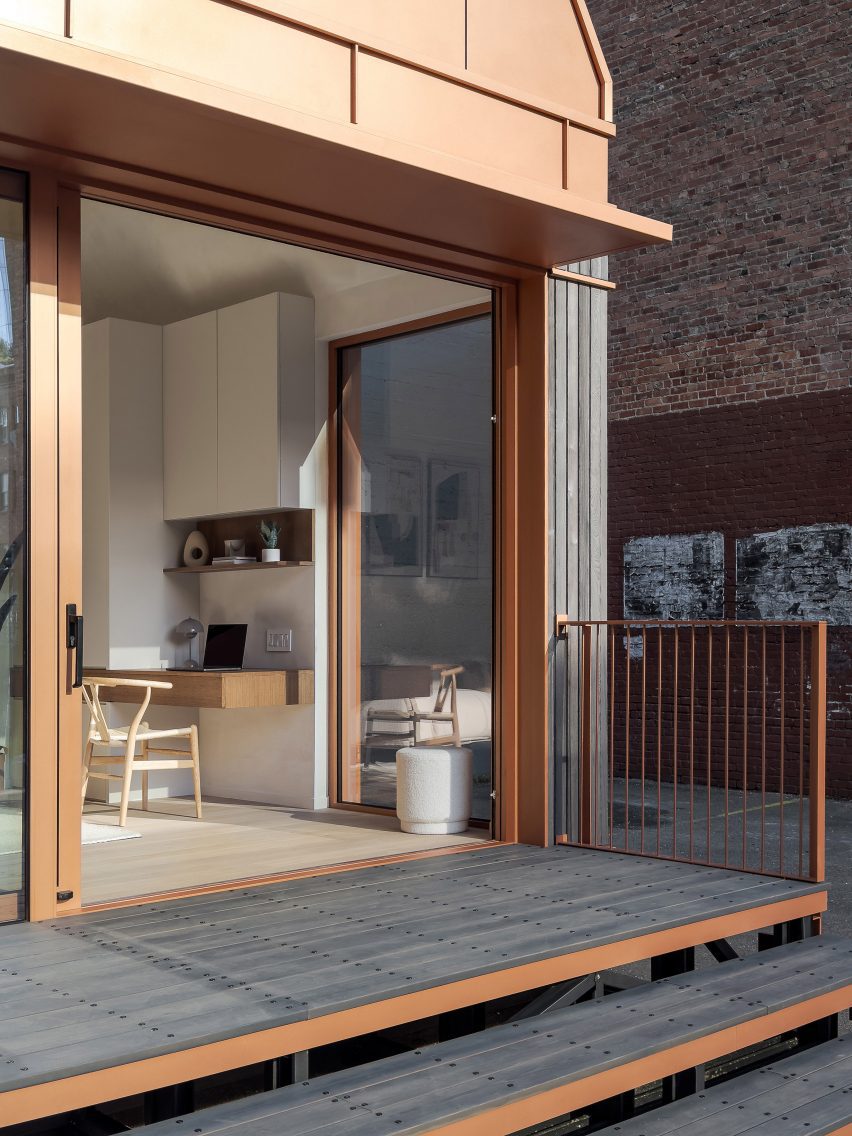
The climate crisis, combined with the affordable housing crisis in California and beyond, were key motivators for creating the Cosmic micro home.
"In addition to the affordability challenges, housing is at the forefront of the battle against climate change," said Cosmic.
"The simple truth is that our carbon crisis is a housing crisis, as most existing and newly built homes rely on the exploitation of natural resources and energy from fossil fuels."
"Cosmic One enables us to add the configurable housing capacity California needs, giving homeowners a fast and sustainable way to build homes to house their expanding families, build a business, or earn new income," the team added.
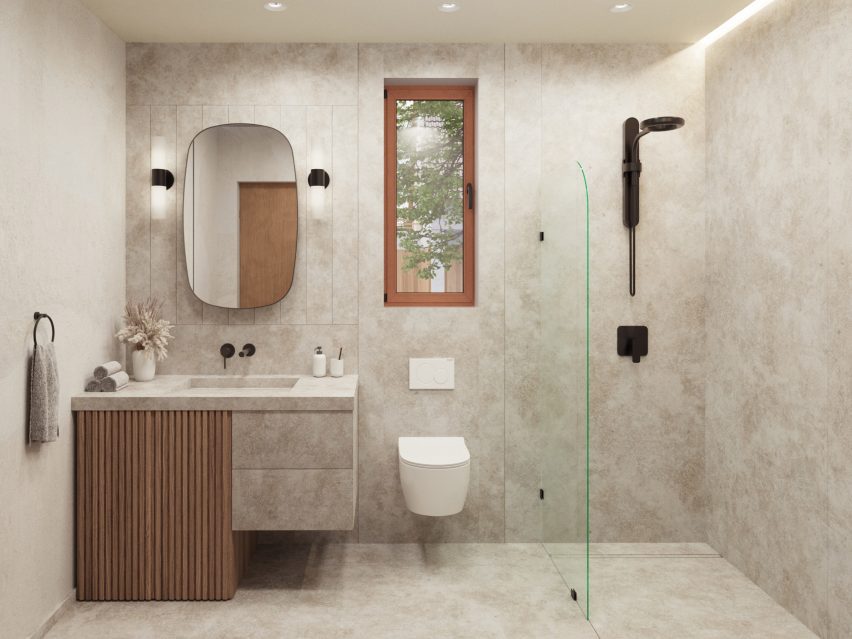
The starting cost for Cosmic One is $279,000 (£219,650), which includes installation.
The company has vowed to donate one per cent of every home solid to the Cosmic Foundation Initiative, which is "dedicated to providing affordable housing and clean energy to children who were displaced by war".
Currently, 100 units are available for purchase in California, and Cosmic hopes to add more states to its roster in the future.
During a recent "pre-seed" round of funding, the company raised $1.5 million (£1.18 million) from investors.
The company – which has an office in Belgrade in addition to San Francisco – was started by Sasha Jokic, an entrepreneur, inventor and trained architect. His previous ventures include Formdwell, a startup company that is creating new construction tools powered by intelligent robots.
Other micro homes in the US include a mobile dwelling by Land Ark that features a slanted roof and dark metal cladding, and a small home with an aero-hydroponic green wall that was designed by Gray Organschi Architecture, in collaboration with researchers at Yale University.
The photography is by Cosmic.